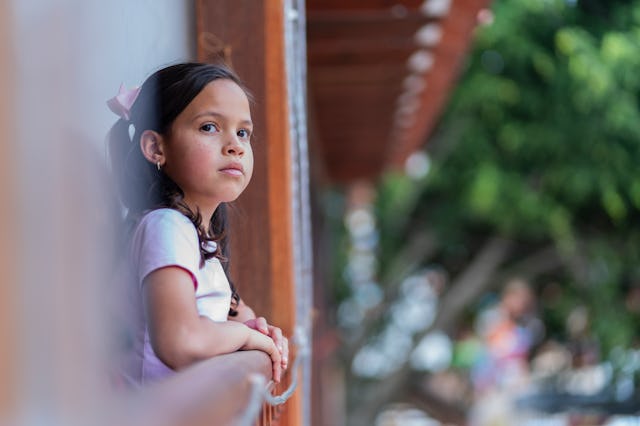Researchers Sound Alarm On Immigration Policy's Effect On Kids' Mental Health
“Immigration enforcement becomes a formative, often traumatic, force in children’s lives.”

Every now and then, there’s a study done whose results are so obvious some may wonder “Why did we need someone to take the time to research something we already know?” But the truth is, as intuitive as something may be, we don’t officially know until we look into it. As such, researchers from the School of Medicine at University of California Riverside recently looked into the effect of U.S. immigration policy and practice on the mental health of children. Their work, published in Psychiatric News in July, found children who have been separated from their parents, or who simply live with the possibility of such separation, can experience “profound emotional harm.”
“Immigration policy in the United States is a source of chronic fear, instability, and trauma for millions of immigrants, with the expansion of enforcement mechanisms transforming daily life for families and children,” the report reads. “Psychiatry cannot remain on the periphery.”
Examining previous research on the topic along with clinical experiences of the UC researchers and others, study authors found a rise in pediatric depression, chronic anxiety, and even PTSD among children whose families have experienced separation from Trump administration immigration policies. Notably, this was not just among children who experienced deportation or detention — either themselves or their parents — but those who had even one parent who might be deported or detained. “The mental health of immigrant children is inseparable from the conditions in which they live, grow, and imagine their futures,” the study observes in its conclusion.
Uncertainty, researchers said — including inconsistent enforcement actions, lack of transparency, and the ubiquity of raids, including at locations once held as safe such as schools, health care facilities, and immigration court — has intensified fear within immigrant communities and among children. Even those who enjoy some legal status have been swept up in immigration enforcement action, adding to the sense within communities that anyone can be detained or deported.
This has resulted not only in worsened mental health outcomes, but withdrawal from public life (including school), sleep and appetite disturbances, emotional dysregulation, and developmental regression.
Researchers also note that while daily deportations are down by double digit percentages (nearly 11% overall), prolonged and indefinite detentions are on the rise, which can be just as traumatizing — leading to increased instances of suicidal ideation and alcohol use — for the children left to cope with separation from a parent.
“Both real and threatened separations can undermine attachment, derail developmental processes, and contribute to persistent traumatic stress,” the study says, continuing. “Immigration enforcement becomes a formative, often traumatic, force in children’s lives.”